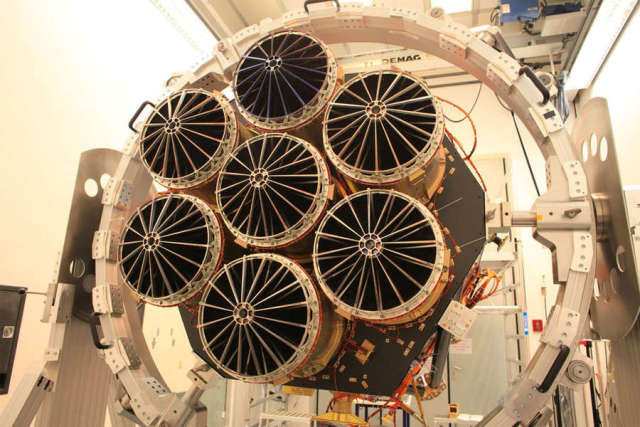RAS continues to insist on cooperation with German scientists
Murat-Tugai (Bashkiria). July 9th. INTERFAX - The inclusion by Russian specialists of the German eROSITA telescope, which is part of the Russian orbital observatory Spektr-RG, will not take place in the near future, the head of the Russian Academy of Sciences (RAS) Alexander Sergeev told Interfax.
"Yes, there was a discussion with Roscosmos and I myself communicated with Dmitry Olegovich (Rogozin - IF) on this matter. He assured me that it would really be necessary to behave carefully, carefully, and this is not a matter of the very near future," Sergeyev said, answering a question about the results of negotiations with the head of Roscosmos about the fate of the German telescope.
He noted that the position of the Russian Academy of Sciences on this issue has not changed. "We continue to say that we must move very carefully in this direction, since eROSITA is a German telescope and this telescope is controlled by our German colleagues," the head of the Russian Academy of Sciences said.
According to him, Russian scientists are concerned about the uncoordinated inclusion of the German telescope, as in the future this may lead to irreversible consequences in terms of joint operation of eROSITA and the Russian ART-XC telescope at Spektr-RG.
"We still hope that our German colleagues will return to this program after some time, when there really is a detente around the situation in Ukraine, and we will work fruitfully together, each operating their own telescope," Sergeyev said.
On June 11, the head of Roscosmos, Dmitry Rogozin, said that the specialists of the state corporation would check whether they could control the German eROSITA telescope. According to him, the process will take from two to four months.
"We have assured the Russian Academy of Sciences that this work will be done by top-level professionals, those who assembled the space observatory itself at the NPO. Lavochkin, and we will provide information to the Russian Academy of Sciences in the course of our study of the management system," he said.
Earlier, he stated that the transfer of the telescope under the control of Roscosmos would not hurt him.
On June 6, Sergeyev told Interfax that Russian scientists were concerned about Roscosmos' plans to independently operate the German telescope. "We did not create this device and we did not operate it. This technique is very serious, unique, and our scientists have concerns about whether we will be able to manage properly in principle. Colleagues express concern about whether we will spoil the device with this," Sergeyev said.
He also said that a letter was sent for his signature to Rogozin explaining the position of the academy.
On June 4, Rogozin announced that he had given instructions to restore the operation of the German eROSITA telescope, which is part of the Russian-German orbital observatory "Spectrum-RG. "We will correct the mistake of the Germans and turn on their telescope at our Spektr-RG observatory," he said.
On June 2, the head of Roscosmos reported that the state corporation was studying the possibility of independently turning on the telescope due to the fact that "Russian specialists insist on continuing its work."
Later, academician Rashid Syunyaev, scientific director of the Spektr-RG observatory project, told Interfax that the resumption of the German eROSITA telescope is possible only with the approval of the German side, and uncoordinated actions can lead to a breakdown of the device. According to Xiunyea, "unilateral actions in such a situation only add even more distrust between people."
On February 26, the German Space Agency notified Roscosmos of its intention to turn off its telescope at the Russian-German Spektr-RG orbital observatory.
The Spektr-RG spacecraft was launched on July 13, 2019 from the Baikonur Cosmodrome. It was created with the participation of Germany within the framework of the federal space program of Russia by order of the Russian Academy of Sciences. The observatory is equipped with two X-ray telescopes: ART-XC (ICI RAS, Russia) and E-ROSITA (MPE, Germany), operating on the principle of oblique X-ray optics. The telescopes are installed on the Navigator space platform (NPO Lavochkina, Russia), adapted to the tasks of the project.

